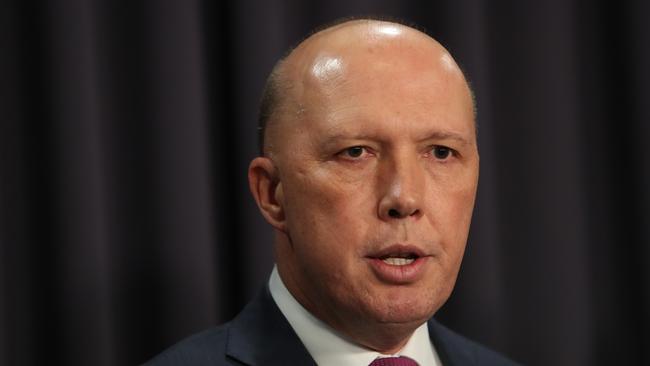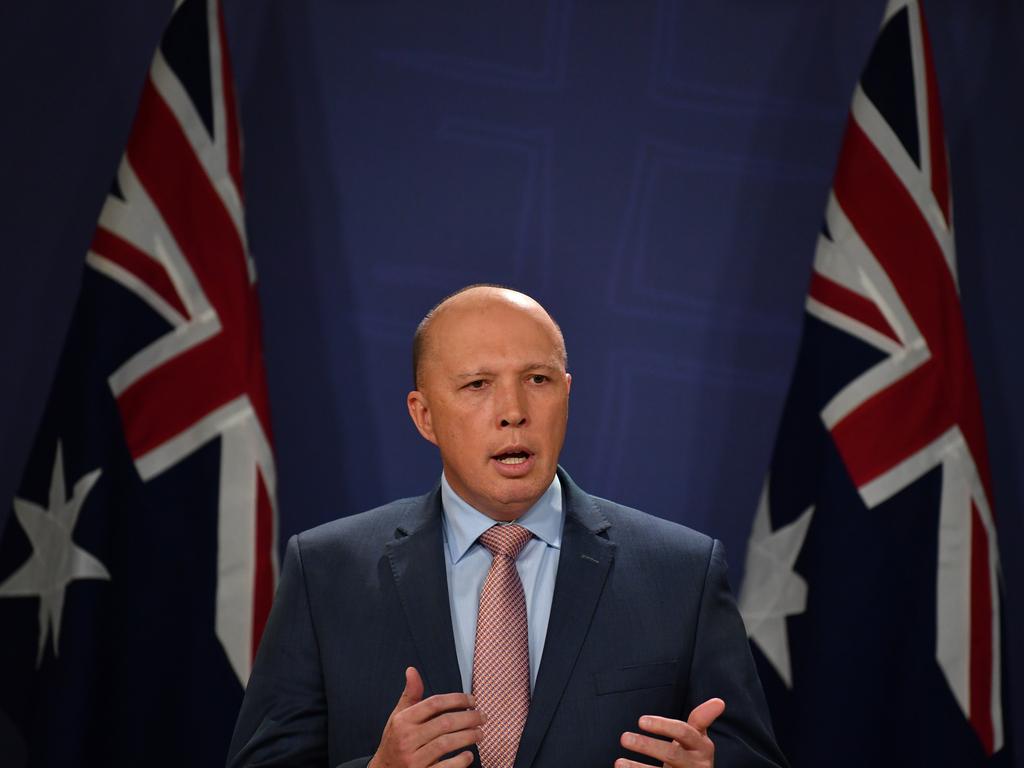Act now on child abuse, Five Eyes tells tech giants
Tech giants have been told they have a month to finalise a voluntary code on child abuse.

The world’s leading intelligence alliance of Australia, US, UK, Canada and New Zealand has demanded tech giants take “immediate” action to combat a 20 fold rise in the live streaming of child sex abuse and online child exploitation.
The Five Eyes alliance has also called on the digital platforms and device manufacturers including Google, Facebook, Microsoft, Apple and Twitter to provide “backdoor” access for law enforcement agencies to read encrypted criminal content in a move that has been strongly resisted by the industry.
The Australian revealed on Monday that Home Affairs Minister Peter Dutton would seek to elevate the issue of child exploitation as a key priority for a Five Country Ministerial meeting in London this week.
In a statement issued last night, the Five Country Ministerial meeting claimed tech industry executives were called in and told there was not being enough done to combat the “abhorrent crime”.
‘Moral obligation’
“In five years, we have seen a near twenty-fold increase in industry referrals of child abuse material to the National Center for Missing and Exploited Children, from 1 million in 2014 to over 18 million in 2018,” the communique said.
“Driven by the moral obligation to tackle this escalating crisis we met representatives from Facebook, Google, Microsoft, Roblox, Snap and Twitter.
“All participants agreed that tackling this epidemic requires an immediate upscaling of the global response to ensure that all children across the globe are protected against online sexual exploitation and abuse, and that there is no safe space online for offenders to operate.
“We note the efforts of digital industry to develop a range of tools to combat the threat, including grooming of children online, and the work being undertaken to support uptake of these tools with smaller companies. While these are welcome steps, much more must be done at pace — every day that passes more children are being abused, exploited, and re-traumatised online. This must stop.”
September deadline
The tech companies have been told they have until September to respond to finalise a voluntary code to stop the “viewing and sharing of child sexual abuse material, the grooming of children online, and the livestreaming of child sexual abuse and the ability to report such offences to law enforcement.
“Today we agreed the core foundations upon which these principles will be based and we call on all digital industry representatives to engage with the Five Countries, through the Digital Industry Engagement Senior Officials Group to collaborate so these can be finalised at the end of September this year,” it said.
“Beyond this it is imperative that all sectors of the digital industry including internet Service Providers and device manufacturers and others to continue to consider the impacts to the safety of children, including those who are at risk of exploitation, when developing their systems and services and deploying encryption.
“We remain resolute in our determination to tackle this abhorrent crime, safeguard children and protect victims and survivors.”
Mr Dutton told The Australian ahead of the meeting that the Five Eyes partners would look at offensive cyber capabilities to disrupt and close down paedophile networks and live streaming of child sex abuse.
Huawei controversy
The meeting also discussed 5G and the controversy over the UK’s consideration of allowing Chinese firm Huawei to participate in the roll out of the UK network. The US and Australia and New Zealand have banned the company from involvement with 5G with the US threatening that if the UK went ahead it would pull back on its intelligence sharing through Five Eyes.
Newly-elected British Prime Minister Boris Johnson has signalled that the UK may reverse its decision following a review claiming he did not want to pursue a course of action that would undermine the Five Eyes relationship.
“The nature of 5G, whilst bringing unparalleled opportunity, will increase the risks to the integrity of our telecommunications networks,” the statement said.
“The Five Countries have each individually undertaken or are undertaking substantial reviews of the security risks to 5G networks. There is agreement between the Five Countries of the need to ensure supply chains are trusted and reliable to protect our networks from unauthorised access or interference. We recognise the need for a rigorous risk-based evaluation of a range of factors which may include, but not be limited to, control by foreign governments.
“We also recognise the need for evidence-based risk assessment to support the implementation of agreed-upon principles for setting international standards for securing cyber networks.”





To join the conversation, please log in. Don't have an account? Register
Join the conversation, you are commenting as Logout